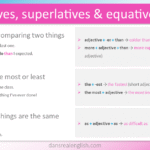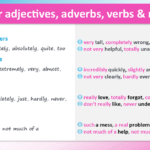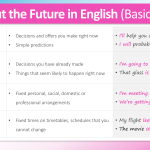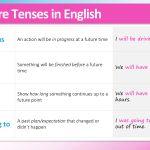Using Second Conditional in English
The Second Conditional helps you talk about imaginary situations or unreal possibilities.
This grammar pattern helps you imagine different results in the present or future — things that are not true right now, or unlikely to happen.
Now’s the time to improve your English grammar by learning how to use second conditionals with more confidence!
Understanding Second Conditional
When do we use the second conditional?
We use the second conditional to talk about unreal or unlikely situations in the present or future. These situations are often imaginary, and not really true now.
Examples:
- If I had more money, I would travel the world. (I don’t have more money, so I can’t travel round the world right now).
- If she studied more, she would pass the test. (But she can’t pass the test because she doesn’t study hard).
- I would help you if I had time. (But I don’t have time now, so I can’t help you).
These sentences are about now or the future, but they describe something that is not true or not likely.
How to make second conditional sentences
The basic structure is: If + past simple, would + base verb
| Part of sentence | Example |
|---|---|
| If clause | If I won loads of money, |
| Main clause | I would buy a new house. |
You can also swap the two parts:
- I would buy a new house if I won the lottery.
More examples:
- If we lived in a warmer country, we would go to the beach more.
- She would be happier if she changed jobs.
- Would you travel more if you had more free time?
“Was” or “were”?
In the second conditional, we often use “were” instead of “was”, even with I, he, or she in more formal contexts:
- If I were you, I’d take the job.
- If she were taller, she could play basketball.
Using “was” is for second conditionals is more common in casual speech:
- If I was you, I’d be careful.
- If he was more organised, he wouldn’t forget meetings.
Tip: Both forms are OK, but “were” is more correct in traditional English grammar.
Second Conditional + questions / negatives
Making questions
Use would + subject + base verb in the question part:
- What would you do if you won the lottery?
- Would you move abroad if you had the chance?
- Who would you call if you lost your phone?
Making negatives
To make a negative sentence, use wouldn’t:
- I wouldn’t buy that car if I were you.
- She wouldn’t be so tired if she slept more.
- They wouldn’t need help if they had more staff.
Fixed phrases with 2nd Conditional
2nd conditional fixed phrases like, “If I were you” are very common in spoken English:
- If I were you.. If I were you, I’d take the job. (I think you should take the job)
- If only.. If only we had more money! (I wish we had more money)
- I’d like – I’d like two coffees, please! (Please give me..)
Model dialogue
Here’s how second conditional structures might sound in a casual conversation:
Lena: If you didn’t have to live in this city, where would you go?
Sam: Hmm… maybe Lisbon. I’d probably move somewhere by the sea.
Lena: Yeah, same. If I lived near the ocean, I’d spend all day walking in the sand and stuff, I guess.
Sam: Yeah, me too.
Lena: Would you leave your job if you had another offer abroad?
Sam: Honestly, yes. If I found something flexible, I’d take it in a second.
Monologue
Here’s someone using 2nd conditional forms in a monologue:
I’ve always enjoyed running, but where I live, there aren’t many parks or running tracks. I think it would be a lot easier for me to build a fitness routine if there was somewhere to go running around here. It would really help me feel less stressed and more focused. Apart from where I live, it’s also hard to find the time for running, as I’m so busy with work and stuff all the time. So yeah, I’d definitely do more sport if I had some more time!
Second conditionals: exercises
Here are a few exercises to help you get better at using second conditionals in English! Answers are below:
Exercise 1: Complete the Sentences
1. If I a car, I to work. (have / drive)
2. If she his number, she him. (know / call)
3. We a new house if we enough money. (buy / have)
4. If it , we for a walk. (not rain / go)
5. What you if you the lottery? (do / win)
Exercise 2: Correct the Mistake
1. If I will see him, I will tell him the news.
2. She would go out more if she has more free time.
3. If we would have more staff, we’d finish on time.
4. He would help you if he knows the answer.
5. If I was a bird, I’d fly everywhere.
Exercise 3: Choose the Right Option
1. If she more confident, she speak in public.
2. What you do if you famous?
3. If we a bigger house, we have more space.
Your final score
Total: 0 / 0







